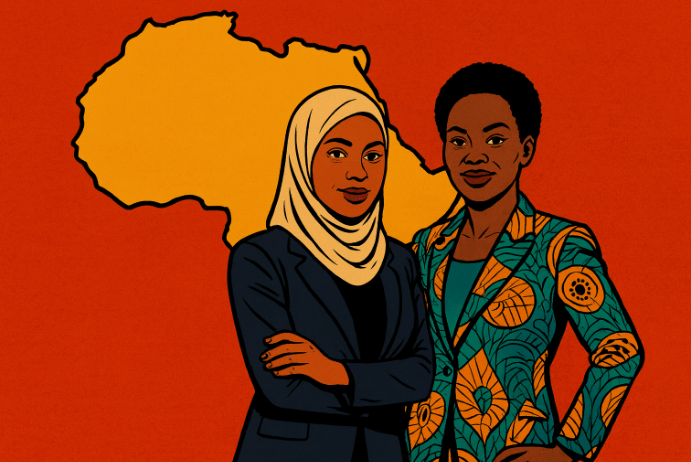Introduction
Youth unemployment has recently become a buzz word in development lingua, and it explains the phenomena where people aged between 15-35 years are not engaged meaningfully for economic gains. While this is a global challenge, Africa is uniquely affected due to its increasing youth bulge. Although Africa has the lowest youth unemployment rate globally (10.6 percent in 2021, according to the International Labor Organization), the majority of Africa’s youth work informally, and many are underemployed. They remain in poverty despite working due to low wages and lack of a social security, making it difficult to compare African countries to more advanced economies. This article argues that youth unemployment in Africa usually translate to youths taking up jobs from the informal sector due to very few opportunities in urban and formal employment. It goes further to interrogate the reasons why Africa’s economic growth in the last decade has not necessarily translated to employment opportunities or a reduction in widespread poverty across the region. It culminates with action plans for investments in sectors other than oil and gas, but household enterprises and agriculture; and a formalization of the informal sector to rid it of vulnerability and volatility.
Africa’s Paradox: World’s Poverty Capital with Economic Growth Potential
In the last few decades, Africa has witnessed economic growth, but this has not necessarily translated to a change in the living standard of the average African. In fact, widespread poverty has increased with youth at the apex of it. This paradox is disarming because the continent has enormous human and natural resources at its disposal. Interestingly, the reason for the economic growth has been traced to trade in oil and gas product, which do not necessarily have direct impact on the citizenry unlike sectors like agriculture and household enterprises which accommodates a large percentage of the workforce. It is therefore important to diversify Africa’s economy and make a swift shift from investments in only oil and gas to the detriment of other sectors. The youth bulge in Africa calls for urgent restructuring to accommodate the teeming youthful population whose agency have the potential to transform Africa.
A Deep Dive into the Informal Sector
It is no longer news that the continent of Africa is bedeviled with Youth unemployment challenge. The Africa Development Bank (AfDB) records that it is for time harder for a youth to get a formal job than an adult. Interestingly, the situation is even more dire for women who find it harder to secure jobs despite having the same skills and competences as men. The global COVID19 pandemic exacerbated the situation as many businesses and companies had to rethink their business models with many opting for automated services.
Many young people have turned to the informal sector to cater for their livelihoods in absence of a white-collar formal job. Contrary to popular opinions, the informal sector has not only persisted but also grown in many developing countries, particularly in Africa where it dominates the economy both in terms of output and employment. Accounting for 80.8% of jobs, the informal sector is the main source of employment and the backbone of economic activity in urban Africa. The hustle and bustle culture of most African cities is upheld by the informal sector characterized by the colorful displays on street corners, household enterprises (HE) and the energetic sprints of street hawkers.
While no single definition exists for the informal sector, its characteristics differentiates it’s from other forms of employment. The ease of entry and set up makes it a very attractive option for many as it requires minimal skill and educational qualification. Interestingly, 9 in 10 informal workers are women and youth, but the lack of social protection, skills’ upgrade and decent wage often trap these groups in poverty and exclusion from economic growth and development. Only about 10 percent of operators benefit from social protection schemes with many of them exposed to severe volatility and vulnerability.
Despite difference in the strength of the informal sector in many African countries, its drivers are largely similar across the region. The labor market in most African economies is driven by educational qualification and skills unlike the informal sector which requires basic literacy and numeracy skills. In a continent where about 60% of its youth are not in school, they stand no chance in the competitive formal sector. In addition, lack of investments in the informal sector, a non-alignment of labor market demand and educational trainings intensifies the growth of the informal sector in Africa.
Harnessing the informal sector to drive youth employability
While there is a recognition that there are no quick fixes to Africa’s youth unemployment challenge, proactive measures must be taken in real time to avoid escalation of the ticking time bomb. The informal sector has a huge potential to drive economic growth and reduce youth unemployment in Africa if it is harnessed effectively. Through intentional investment in the informal sector, the youth bulge will be positively engaged, and its demographic dividend enjoyed by all.
Technical and Vocational trainings (TVET), apprenticeship and other informal trainings have the potential to equip young people with skills and tools that is useful in the 21st century workplace. Regardless of the nature of job, having the right set of skills enables a job seeker to compete favorable in the marketplace. There is a dire need to revisit the educational curricula and adapt its to demands of the labor market in Africa. While the formal sector cannot accommodate the teeming youth population, the informal sector can be empowered through skills training to reduce youth unemployment. Interestingly, people who end up in formal employment also benefit from these skills training irrespective of their educational attainment.
The porosity of the informal sector demands swift structural support that offers social protection for its operators. To curb the volatility and vulnerability that is prevalent in the sector, it is important that the informal sector is restructured to allow young people learn useful skills, get decent wage and protection. The goal of restructuring is not to confer rigidity on the sector but to ensure regulation of process, to allow for competitiveness, financial accountability and inclusion.
Africa cannot ground its development on chance, deliberate efforts must be made to harness all resources and sectors to drive its transformation. African leaders must redirect investments to non-oil sectors like agriculture and household enterprises because they account for the highest number of self-employment statistics in Africa. Household enterprises are unincorporated, nonfarm businesses owned by individual households. They include self-employed people running businesses that may employ family members without pay but may also employ less than five nonfamily workers on a continuous basis.
Lastly, there is need for a systemic policy package for the informal sector to ensure that it is not just seen as a sector for the uneducated. A policy review targeted at formalizing the sector will make it attractive to everyone with in-school youth aspiring to enter the sector. It will no longer become the last resort of many who have unsuccessfully entered formal employment. A system policy review will create a drastic change that trickles to every segment of the sector, thereby making it desirable, empowered and better equipped to provide decent jobs for job seekers.



